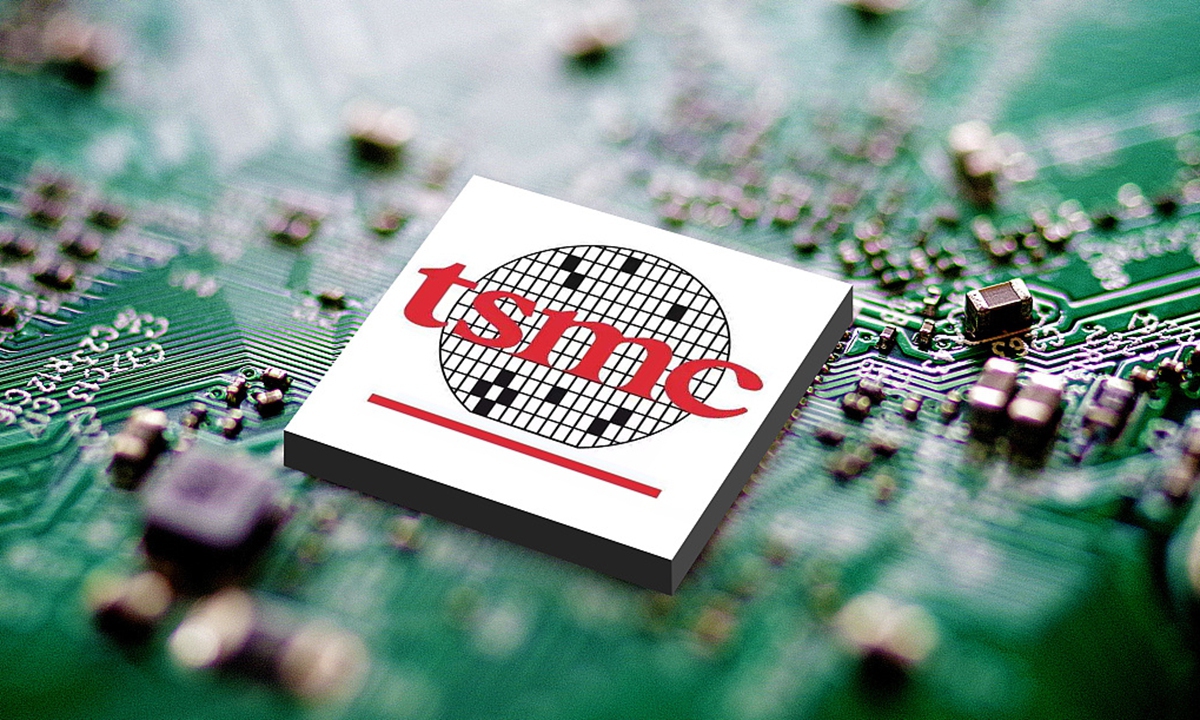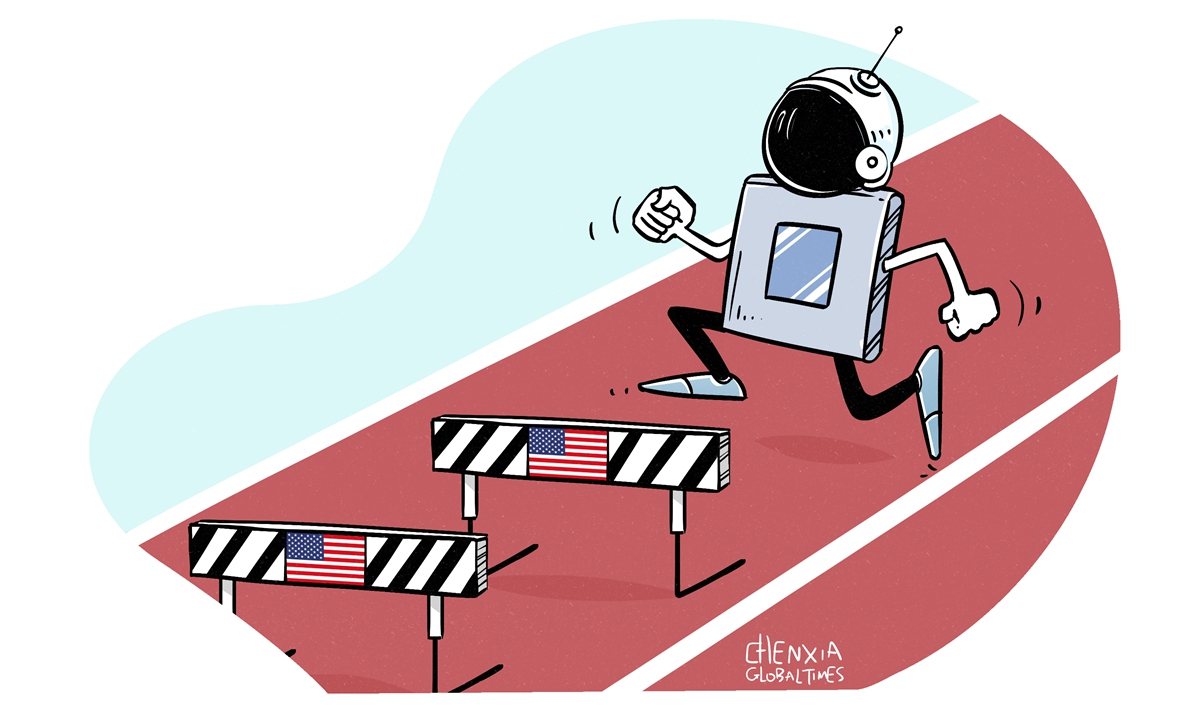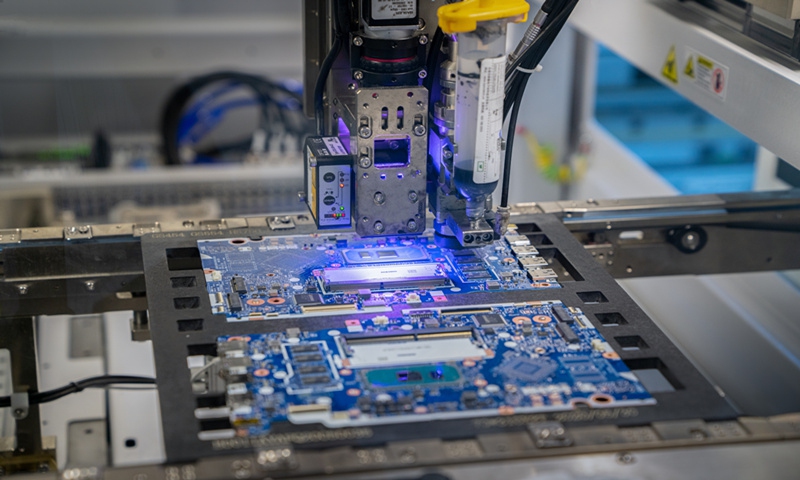US fear-mongering campaign over TSMC, ASML set to fail
Washington uses island of Taiwan as ‘pawn:’ observers

TSMC Photo: VCG
A fear-mongering campaign by US politicians and media outlets about Netherlands-based chipmaker ASML's ability to "disable" the advanced chipmaking machines of TSMC has laid bare Washington's despicable mentality, under which it employs the island of Taiwan as an expendable pawn to contain China, observers said.
Such threatening rhetoric is doomed to backfire, not only on the US - which sources 90 percent of its chips from the island of Taiwan - but also on the global reputation of ASML and TSMC, analysts warned. They called on the companies to issue clarifications as soon as possible.
Industry insiders urged global chip industry chains to be alert to any US manipulation of geopolitical tensions, and to work closely to fend off potential risks.
According to a Bloomberg report on Tuesday (US time), ASML and TSMC "have ways to remotely disable" advanced chipmaking machines known as extreme ultraviolet lithography devices if China realizes national reunification. It quoted sources as saying that ASML affirmed Netherlands government officials on such an ability during a meeting.
Meanwhile, both ASML and TSMC did not respond to requests for comment by the Global Times as of press time.
After Lai Ching-te's speech upon assuming the role of the Taiwan region's new leader on Monday, the US - disregarding global mainstream voices calling for adherence to the one-China principle - has been increasingly manipulating the "Taiwan card" and instigating geopolitical tensions to contain China.
Analysts pointed out that the rhetoric on TSMC's equipment was created in such a context.
Dmitri Alperovitch, chairman of US-based think tank Silverado Policy Accelerator, reportedly proposed several measures in late April to suppress China's semiconductor industry, including destroying the manufacturing equipment of TSMC.
The hype shows that Washington regards TSMC, as well as the island of Taiwan, as chess pieces whose interests could be sacrificed at any time to serve US interests, observers said. They urged the global supply chain to be alert to any US follow-up schemes that aim to instigate or escalate geopolitical tensions.
"The US logic is fraught with mistakes… Washington's series of moves constitute blatant interference in China's internal affairs, which clearly violates international law, goes against historical trends and the will of the people, and severely harms the sovereignty, security and developmental interests of the country," said Gao Lingyun, an expert at the Chinese Academy of Social Sciences.
Chinese observers also warned that while the disabling technology is feasible from a technical perspective, it is a very dangerous remark that could take a heavy toll on the reputation of the two companies. More importantly, if those threats translate into actions, it will paralyze the US high-tech industry rather than having a crippling effect on the progress of China's semiconductor industry.
"It is a wrongdoing that will send shock waves through electronic device makers, wreak havoc on global supply chain stability and slow down global technology development," Xiang Ligang, director-general of the Beijing-based Information Consumption Alliance, told the Global Times on Wednesday.
Xiang added that Chinese mainland tech companies have been redoubling their efforts in recent years to replace imports with mature domestic semiconductor process technology.
Gao told the Global Times on Wednesday that the crackdown will only serve to spur China's self-reliant research and development efforts and drive the country's high-tech advance.
"The core of chip manufacturing lies in the market, where the integration of production and access to a large market is crucial for ongoing innovation," he noted.
In 2023, the volume of integrated circuits imported by China fell by 10.8 percent year-on-year, and the total import value fell by 15.4 percent, customs data showed, underscoring the nation's improved self-sufficiency.
US Commerce Secretary Gina Raimondo has said that the US buys 92 percent of its leading-edge chips from TSMC in the island of Taiwan, AFP reported in mid-May. It supplies the US with everything from Apple's iPhones to Nvidia's cutting-edge artificial intelligence hardware, the report said.



